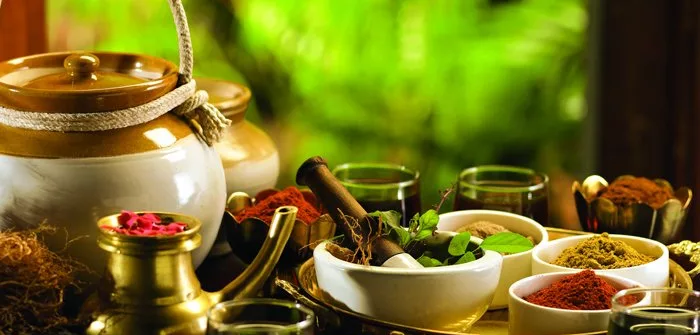Diabetes, a chronic condition characterized by elevated blood sugar levels, has become a global health concern. While conventional medicine offers various treatments, many people are turning to alternative therapies like Ayurveda for holistic management. Ayurveda, an ancient Indian system of medicine, offers a comprehensive approach to treating diabetes, addressing both physical and mental aspects of the condition.
Understanding Diabetes from an Ayurvedic Perspective
In Ayurveda, diabetes is often linked to imbalances in the doshas, the three fundamental energies that govern the body: Vata, Pitta, and Kapha. Imbalances in these doshas can lead to impaired digestion, poor metabolism, and ultimately, elevated blood sugar levels.
Ayurvedic Treatment for Diabetes
Ayurvedic treatment for diabetes focuses on restoring balance to the doshas and improving overall health. Here are some key aspects of Ayurvedic treatment:
1. Diet:
- Balanced Diet: Ayurveda emphasizes a balanced diet that includes a variety of fresh, whole foods.
- Limited Intake of Sweet Foods: Excessive consumption of sugary foods and refined carbohydrates can exacerbate diabetes.
- Spices and Herbs: Certain spices and herbs, such as turmeric, cinnamon, and fenugreek, have been traditionally used to manage blood sugar levels.
2. Lifestyle Modifications:
- Regular Exercise: Physical activity is crucial for maintaining healthy blood sugar levels.
- Stress Management: Stress can negatively impact blood sugar control. Ayurvedic practices like yoga, meditation, and pranayama can help reduce stress.
- Adequate Sleep: Sufficient sleep is essential for overall well-being and can contribute to better blood sugar regulation.
3. Herbal Remedies:
- Bitter Gourd (Karela): This vegetable has been used for centuries to lower blood sugar levels.
- Jamun (Indian Blackberry): The fruit and seeds of jamun have hypoglycemic properties.
- Gymnema Sylvestre: This herb is known to reduce sugar cravings and improve insulin sensitivity.
4. Panchakarma Therapies:
- Panchakarma is a detoxification process that involves various therapies, such as massage, herbal enemas, and oil therapies. These therapies can help cleanse the body and improve its ability to regulate blood sugar.
Benefits of Ayurvedic Treatment for Diabetes

- Holistic Approach: Ayurveda addresses the root cause of diabetes, rather than just the symptoms.
- Minimal Side Effects: Ayurvedic treatments are generally safe and have minimal side effects.
- Improved Quality of Life: By restoring balance to the body and mind, Ayurveda can significantly improve the quality of life for people with diabetes.
To get treatment of Panchakarma Virechana Body Detox, Call to Ayursh Ayurveda.
Understanding the Symptoms of Diabetes
Diabetes is a chronic condition that affects how your body turns food into energy. When you have diabetes, your body either doesn’t produce enough insulin or can’t effectively use the insulin it does produce.
Common Symptoms of Diabetes:
While symptoms can vary, here are some of the most common ones:
- Increased thirst: Feeling thirsty more often than usual.
- Frequent urination: Needing to urinate more frequently, especially at night.
- Extreme hunger: Feeling hungry, even after eating.
- Unexplained weight loss: Losing weight without trying.
- Blurry vision: Difficulty focusing.
- Slow-healing sores: Cuts and bruises that take longer to heal.
- Fatigue: Feeling tired and weak.
- Tingling sensations: Numbness or tingling in the hands or feet.
- Increased infections: Frequent infections, especially skin, gum, or bladder infections.
Types of Diabetes and Symptoms:
- Type 1 Diabetes: Typically diagnosed in children and young adults, it occurs when the body’s immune system attacks the cells in the pancreas that produce insulin. Symptoms can develop rapidly and severely.
- Type 2 Diabetes: More common, often develops gradually in adults. Symptoms may be mild or absent, making it easy to miss.
- Gestational Diabetes: Develops during pregnancy. Symptoms are often mild or absent.
If you’re experiencing any of these symptoms, it’s crucial to consult with a healthcare provider for proper diagnosis and treatment.
Panchakarma: A Holistic Approach to Diabetes Management
Panchakarma, an ancient Ayurvedic detoxification therapy, offers a comprehensive approach to managing diabetes. By addressing the root cause of the imbalance, Panchakarma can help regulate blood sugar levels, improve insulin sensitivity, and enhance overall health.
Key Panchakarma Therapies for Diabetes
- Virechana: This therapeutic purgation therapy helps eliminate toxins from the liver and gallbladder, promoting efficient digestion and metabolism.
- Vasti: This procedure involves the administration of medicated enemas to cleanse the colon and improve digestive health.
- Abhyanga: This therapeutic massage involves the application of medicated oils to the body, which helps to relax muscles, improve circulation, and reduce stress.
- Swedana: This sweating therapy helps to eliminate toxins through the skin and improve circulation.
- Udwarthanam: This powerful massage therapy involves the vigorous application of medicated powders to the body, which helps to stimulate circulation, reduce inflammation, and promote weight loss.
How Panchakarma Benefits Diabetes Management
- Detoxification: Removes toxins that can impair the body’s ability to regulate blood sugar.
- Improved Digestion: Enhances the body’s ability to absorb nutrients and utilize them effectively.
- Reduced Inflammation: Reduces inflammation, which can contribute to insulin resistance.
- Stress Reduction: Promotes relaxation and reduces stress, which can help regulate blood sugar levels.
- Boosted Immunity: Strengthens the immune system, making the body more resilient to disease.
Ayurvedic Lifestyle Recommendations for Diabetes Patients

Ayurveda offers a holistic approach to managing diabetes, focusing on balancing the body’s doshas (Vata, Pitta, and Kapha) and promoting overall well-being. Here are some key lifestyle recommendations:
Diet:
- Balanced Diet: Consume a balanced diet that includes a variety of fresh, whole foods.
- Limit Sweet Foods: Reduce intake of sugary foods and refined carbohydrates.
- Bitter and Pungent Foods: Incorporate bitter and pungent foods like bitter gourd, fenugreek, and turmeric, which can help regulate blood sugar levels.
- Regular Meals: Eat regular meals to maintain stable blood sugar levels.
- Avoid Heavy and Oily Foods: Limit heavy, oily, and fried foods.
- Hydration: Drink plenty of water throughout the day.
Lifestyle:
- Regular Exercise: Engage in regular physical activity like yoga, walking, or swimming.
- Stress Management: Practice stress-reducing techniques like meditation, yoga, and deep breathing exercises.
- Adequate Sleep: Ensure sufficient sleep to support overall health and hormone regulation.
- Early Dinner: Have dinner early to allow for proper digestion before sleep.
- Morning Routine: Start your day with a warm water rinse and a gentle oil massage (Abhyanga).
Ayurvedic Therapies:
- Panchakarma: Undergo Panchakarma therapies, such as Virechana (therapeutic purgation) and Vasti (medicated enemas), to detoxify the body and improve digestion.
- Herbal Remedies: Consult with an Ayurvedic practitioner to explore herbal remedies like Gymnema sylvestre and bitter gourd, which can help regulate blood sugar levels.
Remember: It’s crucial to consult with a qualified Ayurvedic practitioner to create a personalized treatment plan tailored to your specific needs and constitution. While Ayurveda offers a promising approach to diabetes management, it should be used in conjunction with conventional medical treatments.
Conclusion
Ayurvedic treatment for diabetes offers a natural and effective approach to managing this chronic condition. By combining diet, lifestyle modifications, herbal remedies, and Panchakarma therapies, Ayurveda can help individuals with diabetes achieve better blood sugar control, reduce the risk of complications, and improve their overall well-being. It is important to consult with a qualified Ayurvedic practitioner to develop a personalized treatment plan.
Dr. Sri Ranjani Bhat will recommend suitable therapies tailored to address your specific health concerns, ensuring a holistic approach to wellness.
Also, Read – PCOS Treatment in Ayurveda | Panchakarma for PCOS



